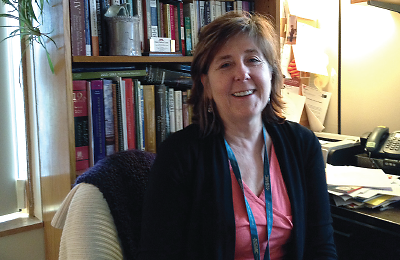Innovative ‘Buddy System’ Teaches Collaboration
Abstract
It’s critical that educators begin to prepare their trainees for a future in which the skills and habits of collaboration will be increasingly necessary.

A training model in which residents in pediatrics and medicine/pediatrics are teamed with child psychiatry trainees appears to be a successful strategy for introducing young physicians to integrated care.
Residents in child and adolescent psychiatry (CAP) and pediatrics and medicine-pediatrics participating in “The Buddy System: A Collaborative Learning Model” report understanding more about the other specialties and about the importance of collaboration after the experience, and residents in all of the participating specialties have expressed enthusiasm about continued participation.
Developed by the child and adolescent psychiatry residency program and the pediatric training program at Maine Medical Center (MMC), the model also appears to be catching on at other institutions.

Sandra Fritsch, M.D., says residents and fellows in “The Buddy System” report understanding more about the other specialties and the benefits of collaboration.
Sandra Fritsch, M.D., the child and adolescent psychiatry training director at MMC, presented the model during poster sessions at the annual meeting of the American Association of Directors of Psychiatric Residency Training (AADPRT) in Tucson, Ariz. In an interview with Psychiatric News, she said the model is an effort to introduce young physicians to the practices and habits of collaboration across disciplines that will be necessary to working within integrated care models.
“One of the reasons why this model is important is that although integrated care systems make sense, there will never be enough child and adolescent psychiatrists to care for patients in every pediatric system,” Fritsch said. “So you have to have a system to extend the expertise of child psychiatrists to make it work. So building these kinds of relationships early on is essential.
“Traditionally collaborative contact has occurred in the acute medical setting with the consultation-liaison service to answer a single question for a medically hospitalized individual,” she said. “Primary care clinicians leave their residency training with little formalized education around mental health and behavioral health concerns and have limited resources to assist them. And child and adolescent psychiatrists may have only six to eight weeks on a pediatric rotation in medical school, yet they will be caring for children their entire professional career.”
The model was first envisioned as a component of an AADPRT workshop in 2012. Fritsch then sought out the “buy-in” of training directors in pediatrics and medicine-pediatrics at MMC. Surveys were developed prior to the implementation of the model to learn about prior experiences and exposure to each profession and beliefs about level of knowledge and about trainees’ personal sense of efficacy with regard to working with other disciplines.
Key components of the model include the following:
Residents from the three training programs—CAP, pediatrics, and medicine/pediatrics—are paired with each other for timely telephone or email consultation. | |||||
CAP residents have face-to-face consultations with their partners from the other programs and see patients in the pediatric clinic. | |||||
Pediatric residents have their clinical CAP rotation (approximately three or four outpatient clinics) with the CAP fellow and during their adolescent medicine month, and second-year pediatrics and medicine/pediatrics residents pair up with their CAP buddies one afternoon a week in the pediatric psychopharmacology clinic. | |||||
CAP fellows have access to pediatric residents for questions about general medical questions related to the care of their psychiatric patients. | |||||
Residents and fellows “break bread” together, form relationships, and learn about the cultural differences associated with each discipline. | |||||
Postsurvey data from all three programs revealed that trainees reported improvements over presurvey data across most of the measured indicators of success: understanding the cultural differences associated with each discipline, awareness of the importance of integration, knowledge of skills necessary to collaborate across disciplines, and knowledge about conditions and disorders of patients and how to treat or manage them.
As it picks up speed, the Buddy System continues to enjoy enthusiasm and support of trainees, faculty, and program directors, Fritsch said. Joint learning sessions will be developed around shared cases for topics such as headache, abdominal pain, and failure to thrive.
She said that pediatric and pediatric-medicine residents have requested “psychiatric-style supervision” for emotionally challenging rotations such as the neonatal or perinatal intensive care unit.
Teaching collaboration to her fellows comes naturally to Fritsch, who was trained in a triple-board program at Brown University—child psychiatry-general psychiatry-pediatrics—and has experienced the differing skill sets needed with different patient populations. She said that the model is attracting interest from other CAP programs—among them, the University of Arizona and Upstate Medical University of the State University of New York.
She said it’s critical that educators begin to prepare their trainees for a future in which the skills and habits of collaboration will be increasingly necessary. “I am struck by the fact that health care is changing, yet we have yet to change our curricula to really address some of the ways we are being expected to practice,” she told Psychiatric News. “The more we can encourage our fellows and residents to learn together, the better we can prepare them for collaboration when they enter independent practice.” ■



